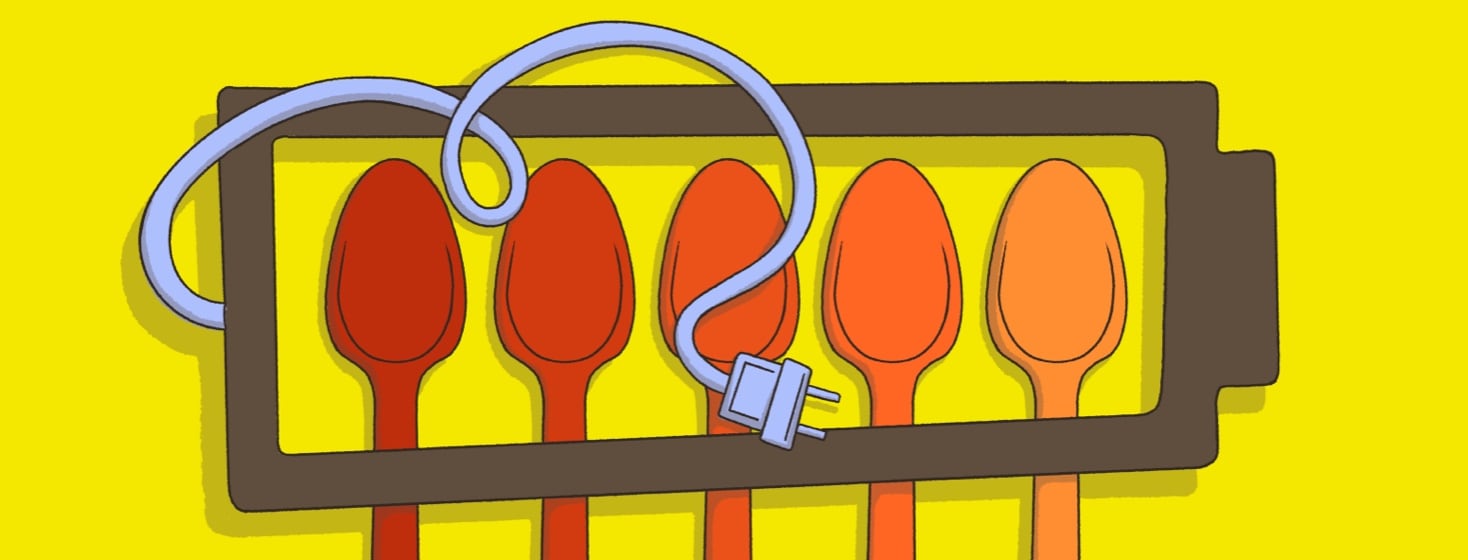Questioning the Spoon Theory
I’m going to admit something that I fear won’t make me popular in the chronic illness community. I don’t really get the spoon theory. Yes, I know that life hands us a certain number of imaginary spoons every day, and when we’re out of spoons, we’re done for the day.
Let me share what makes a bit more sense to me.
What's in a spoon?
One day, I’m driving down the street between my errands. I have to pick up prescriptions from my pharmacy and then go visit my mom in her memory care center. It doesn’t seem like much, but I'm also planning to cook dinner later and want to conserve my energy for that.
Then my husband calls and asks me to stop and pick up two 20-ounce bottles of diet Mountain Dew. This was not planned. Now what? I have perfectly accounted for all my energy for the day and his request meant that I needed to recalculate.
Feeling charged up
In the scenario I just described, I never thought of my energy allotment in terms of spoons. Instead, I think of it as more like my iPhone battery. Every night when I go to bed, I put my phone on the charger. When I wake up in the morning, the phone is fully charged.
As the day goes on, I see the green light on the battery shrink. Some mornings, I wake up to realize that I thought I put my phone on the charger, but the charger wasn’t plugged into the wall.
I equate that with the nights that I just didn’t get any sleep because I couldn’t get comfortable. So, instead of running out of spoons, I just think of it as my battery dying.
A constant battle of time and energy
When I decide what I want or need to do each day, it is all based on priorities. If I have a high-energy task, I won’t plan anything else for that day. If I have lower energy tasks, I might plan two or three on the same day, but I always try to take care of these tasks in the order of priority, since I never know when I might run out of energy.
If going to visit my mom is the most important task, I will go do that first. That way, if I end up staying longer than planned or if she needs my help with something, I will be available to help her.
It’s also possible to take on other spur-of-the-moment plans, but only if I can figure out a way that I can use as little energy as possible. For instance, if my husband could be flexible on his soft drink selection, I could pick something up for him at a drive-through without sacrificing my energy.
No matter which way you think about it, life with psoriasis is a constant battle of time and energy.

Join the conversation